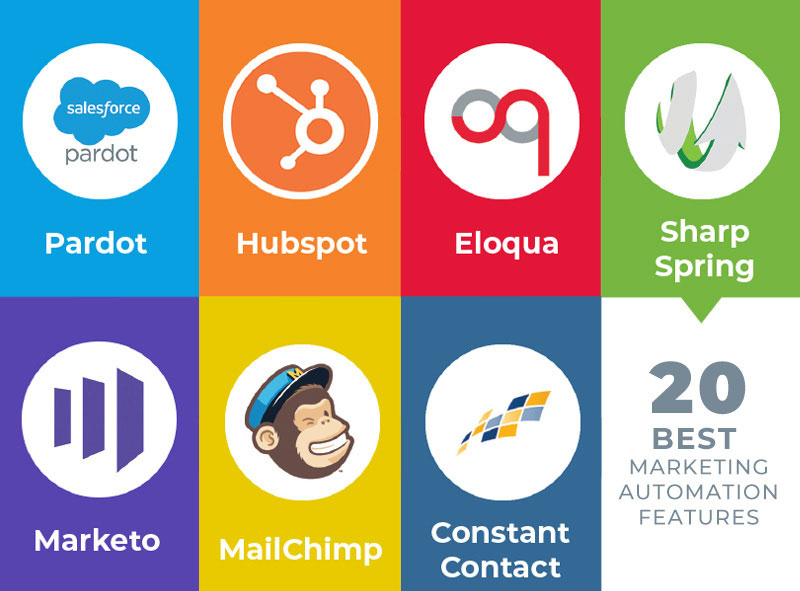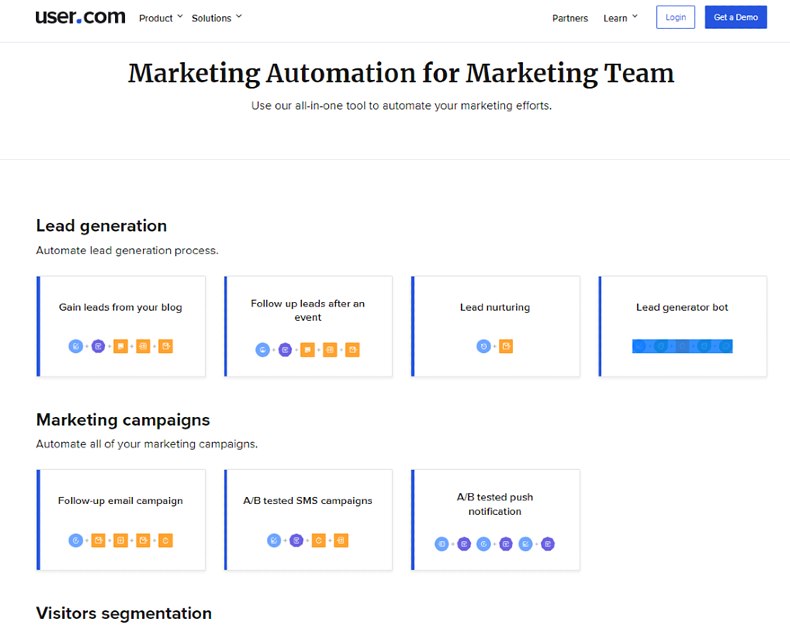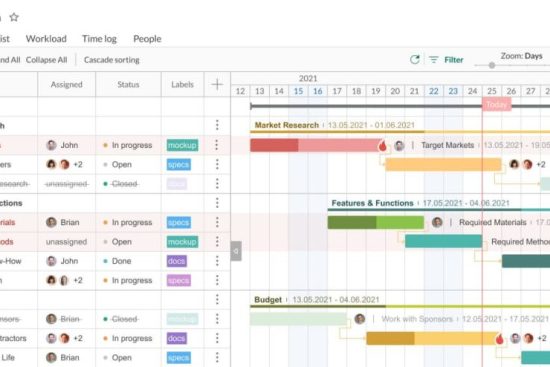
Content marketing can be time-consuming. Automation tools make it easier and faster.
In today’s fast-paced digital world, staying ahead of the competition is tough. Content marketing automation tools can be a game-changer for businesses. These tools help streamline tasks, improve efficiency, and save valuable time. Instead of manually handling every aspect of content marketing, automation tools can manage scheduling, posting, and even analyzing performance.
This allows marketers to focus on strategy and creativity rather than repetitive tasks. Whether you’re a small business or a large corporation, using the right automation tools can enhance your marketing efforts and drive better results. Ready to explore how these tools can benefit your business? Let’s dive in and discover the best options available.

Credit: blog.elink.io
Introduction To Content Marketing Automation
Content marketing automation tools are becoming essential in the digital age. They help marketers manage and streamline their content creation process. These tools save time and ensure consistency. This introduction will explore what content marketing automation is and its importance in modern marketing.
What Is Content Marketing Automation?
Content marketing automation refers to using software to manage marketing tasks. These tasks include content creation, distribution, and analysis. Automation tools can schedule posts, track engagement, and measure performance. This reduces manual work and enhances efficiency.
Importance In Modern Marketing
Content marketing automation plays a crucial role in today’s marketing strategies. Businesses need to maintain a consistent online presence. Automation tools help achieve this by ensuring timely content delivery. They also provide insights into audience behavior. This helps in crafting more targeted content.
Automation tools also improve productivity. By handling repetitive tasks, they free up time for creative work. Marketers can focus on strategy and innovation. This leads to better content and more effective campaigns.
Key Benefits
Content marketing automation tools offer several key benefits that can transform your marketing strategy. They streamline processes, save time, and enhance the overall efficiency of your marketing efforts. Let’s explore some of the primary advantages of using these tools.
Enhanced Efficiency
Content marketing automation tools help in automating repetitive tasks. This saves valuable time and resources. You can schedule posts, manage emails, and track analytics with ease. Automation ensures consistent content delivery across all platforms. It allows your team to focus on strategic tasks rather than mundane activities.
Improved Roi
These tools provide detailed insights into the performance of your content. You can track metrics like engagement, clicks, and conversions. This data helps in refining your strategy for better results. By targeting the right audience with personalized content, you can achieve higher engagement. This leads to better returns on your marketing investments.
Top Content Marketing Automation Tools
Content marketing automation tools help streamline and optimize your content strategies. These tools save time and improve efficiency. They also ensure consistency across various channels. Let’s look at the top content marketing automation tools available today.
Popular Tools Overview
Several content marketing automation tools have gained popularity. They offer diverse features to suit different needs. Some well-known tools include HubSpot, CoSchedule, and Buffer. Each tool has unique strengths and capabilities. Choosing the right one depends on your specific requirements.
Features And Capabilities
Content marketing automation tools come with various features. These features help manage and streamline content creation, distribution, and analysis.
HubSpot offers comprehensive marketing features. It includes email marketing, social media management, and analytics. HubSpot also provides CRM integration for better customer management.
CoSchedule focuses on content scheduling and organization. It offers a drag-and-drop calendar for easy planning. CoSchedule also integrates with popular platforms like WordPress and Google Analytics.
Buffer is well-known for social media automation. It helps schedule posts across multiple platforms. Buffer also provides detailed analytics to track performance.
These tools offer valuable features for efficient content marketing. They help save time and ensure consistency in your marketing efforts.
Selecting The Right Tool
Choosing a content marketing automation tool is essential for your strategy’s success. The right tool can streamline processes, save time, and enhance your marketing efforts.
Factors To Consider
Several factors can impact your decision. It’s crucial to evaluate these aspects to find the best fit for your needs:
- Budget: Determine your budget to narrow down options.
- Features: Identify key features required for your strategy.
- User-Friendliness: Ensure the tool is easy to use.
- Integration: Check if it integrates with your existing tools.
- Support: Consider the level of customer support provided.
Comparing Options
Comparing different tools can help you make an informed choice. Below is a table to help you compare some popular options:
| Tool | Key Features | Price Range | User Rating |
|---|---|---|---|
| Tool A | SEO optimization, Content scheduling, Analytics | $$ | 4.5/5 |
| Tool B | Email marketing, Social media management, Automation | $$$ | 4.3/5 |
| Tool C | Content creation, Collaboration, Workflow management | $ | 4.2/5 |
By considering these factors and comparing options, you can select a tool that aligns with your goals and budget. Make sure to choose a tool that fits your team’s workflow and enhances your content marketing efforts.
Implementation Strategies
Content marketing automation tools can transform how businesses manage and distribute content. But to harness their full potential, proper implementation strategies are crucial. In this section, we will explore the best ways to implement these tools effectively.
Planning And Setup
Start by identifying your content marketing goals. Do you want to increase engagement, boost website traffic, or generate more leads? Clear goals will guide your setup process.
Next, choose the right tools for your needs. Research different options and select those that align with your goals. Ensure the tools integrate well with your existing systems.
Create a detailed implementation plan. Outline each step, from tool selection to full integration. Assign responsibilities to team members and set realistic deadlines. This ensures everyone knows their role and the timeline.
Training Your Team
Your team needs proper training to use the new tools effectively. Schedule comprehensive training sessions. Cover all features and functionalities of the tools. Provide hands-on practice during training.
Encourage your team to ask questions and share feedback. This helps identify any issues or areas needing further clarification.
Document the training process. Create manuals or guides for future reference. This helps new team members get up to speed quickly.
Regularly update your team on any new features or changes in the tools. Continuous learning ensures your team remains proficient in using the tools.
Measuring Success
Content marketing automation tools help streamline your marketing efforts. But how do you know if they are working? Measuring success is crucial. It tells you what is effective and what needs improvement. This section will guide you on key performance indicators and analyzing results.
Key Performance Indicators
Key performance indicators (KPIs) are metrics that show how well your content is performing. Here are some essential KPIs to consider:
- Website Traffic: The number of visitors to your site.
- Conversion Rate: The percentage of visitors who take a desired action.
- Engagement Rate: Likes, shares, and comments on your content.
- Bounce Rate: The percentage of visitors who leave after viewing one page.
- Lead Generation: The number of new contacts added to your database.
Analyzing Results
After identifying your KPIs, the next step is to analyze the data. This helps you understand how well your content is doing. Here are some tips for analyzing results:
- Compare Against Benchmarks: Look at industry standards to see how you measure up.
- Identify Trends: Look for patterns over time to understand what works.
- Use Visualization Tools: Charts and graphs can make data easier to understand.
- Segment Data: Break down data by different audience segments.
- Look for Anomalies: Identify any unexpected spikes or drops in your data.
By analyzing results, you can make informed decisions to improve your content marketing strategy. This ensures that you get the most out of your automation tools.
Overcoming Common Challenges
Content marketing automation tools can greatly enhance your marketing strategy. But they come with their own set of challenges. Overcoming these challenges is crucial for maximizing the benefits of these tools. Let’s explore some common challenges and how to address them.
Technical Issues
Technical issues are a significant hurdle in content marketing automation. These tools can be complex. They require proper integration with existing systems. Poor integration can cause data discrepancies. This can affect your marketing efforts. Regular maintenance can help. Ensure your tools are up-to-date. Always monitor for any issues that arise. A dedicated IT team can be invaluable.
User Adoption
Another common challenge is user adoption. New tools can be intimidating for your team. Training sessions are essential. They help users understand the tool’s features. Provide hands-on experience. Make sure your team feels comfortable using the tool. Encourage feedback. This can help you address any user concerns. A user-friendly interface is also critical. It makes the tool more accessible for everyone.

Credit: www.keyshot.com
Future Trends In Automation
The world of content marketing is rapidly evolving. Automation tools are at the forefront of this transformation. These tools are becoming smarter, faster, and more efficient. Let’s explore the future trends in automation.
Ai And Machine Learning
AI and Machine Learning are shaping the future of content marketing. These technologies analyze vast amounts of data quickly. They predict trends and recommend strategies. This helps marketers make data-driven decisions.
Personalization is another key benefit. AI tailors content to individual preferences. This improves user engagement and conversion rates. AI-powered tools also automate repetitive tasks. This saves time and allows marketers to focus on creative work.
Here are some examples of AI applications in content marketing:
- Content creation and curation
- Audience segmentation
- Predictive analytics
- Chatbots and virtual assistants
Integration With Other Technologies
Integration with Other Technologies enhances the power of automation tools. These integrations streamline workflows and improve efficiency.
CRM Integration is one example. Connecting automation tools with CRM systems provides a unified view of customer interactions. This helps in creating targeted campaigns.
Social Media Integration is also crucial. It allows marketers to schedule posts, monitor engagement, and analyze performance from a single platform.
Here’s a table to illustrate some key integrations:
| Technology | Benefits |
|---|---|
| CRM Systems | Unified customer view, targeted campaigns |
| Social Media Platforms | Scheduling, monitoring, performance analysis |
| Email Marketing Tools | Automated email campaigns, personalized messages |
Voice Search Optimization is another trend. With the rise of smart speakers, optimizing content for voice search is becoming essential. Automation tools help in creating voice-friendly content.
In summary, the future of content marketing automation is exciting. AI and technology integrations are leading the way. Staying updated with these trends is crucial for success.
Case Studies
Exploring the world of content marketing automation tools can be overwhelming. Learning from case studies helps understand their real-world applications. This section presents success stories and lessons learned from businesses using these tools.
Success Stories
Many businesses have seen significant growth with content marketing automation tools. Here are a few examples:
- Company A: Increased their blog traffic by 150% in six months.
- Company B: Reduced content creation time by 60%.
- Company C: Achieved a 70% increase in lead generation.
These success stories demonstrate the potential of automation tools in enhancing content strategies. Company A used a tool to schedule and post content consistently. This resulted in more engagement and higher traffic. Company B automated their content curation process. They saved valuable time and focused on other marketing efforts. Company C leveraged automation for personalized email campaigns. They saw a significant boost in lead conversions.
Lessons Learned
While success is inspiring, there are valuable lessons from using content marketing automation tools:
- Understand Your Audience: Tools can help segment your audience. Tailor content to match their preferences.
- Consistency is Key: Regularly scheduled posts keep your audience engaged. Automation ensures you never miss a post.
- Quality Over Quantity: Automated content should still be high-quality. Don’t compromise on the value provided to your audience.
- Monitor Performance: Use analytics to track the success of your automated campaigns. Make adjustments as needed.
These lessons highlight the importance of a strategic approach. Automation tools are powerful, but they require thoughtful implementation. Understanding your audience ensures your content resonates with them. Consistency keeps your brand top-of-mind. Quality content builds trust and credibility. Monitoring performance helps refine your strategy for better results.
In conclusion, content marketing automation tools have great potential. Success stories show their effectiveness. Lessons learned offer valuable insights for optimizing your strategy.

Credit: www.marketingprofs.com
Frequently Asked Questions
What Are Content Marketing Automation Tools?
Content marketing automation tools streamline content creation and distribution. They help manage tasks, schedule posts, and analyze performance. These tools save time and enhance efficiency.
How Do These Tools Benefit Marketers?
These tools save time, improve productivity, and ensure consistent content delivery. They also provide analytics to measure success and optimize strategies.
Can Automation Tools Improve Content Quality?
Yes, automation tools ensure consistency and accuracy. They also offer insights and suggestions for better content, enhancing overall quality.
Are There Free Content Marketing Automation Tools?
Yes, some tools offer free versions with basic features. Examples include Buffer, Hootsuite, and HubSpot.
Conclusion
Content marketing automation tools simplify your marketing efforts. They save time and improve efficiency. You can focus on creative tasks while tools handle the routine work. They help track performance and optimize your strategies. With the right tools, you can achieve better results without extra stress.
Start exploring these tools today and enhance your content marketing journey. Embrace automation and see the difference. Happy marketing!

